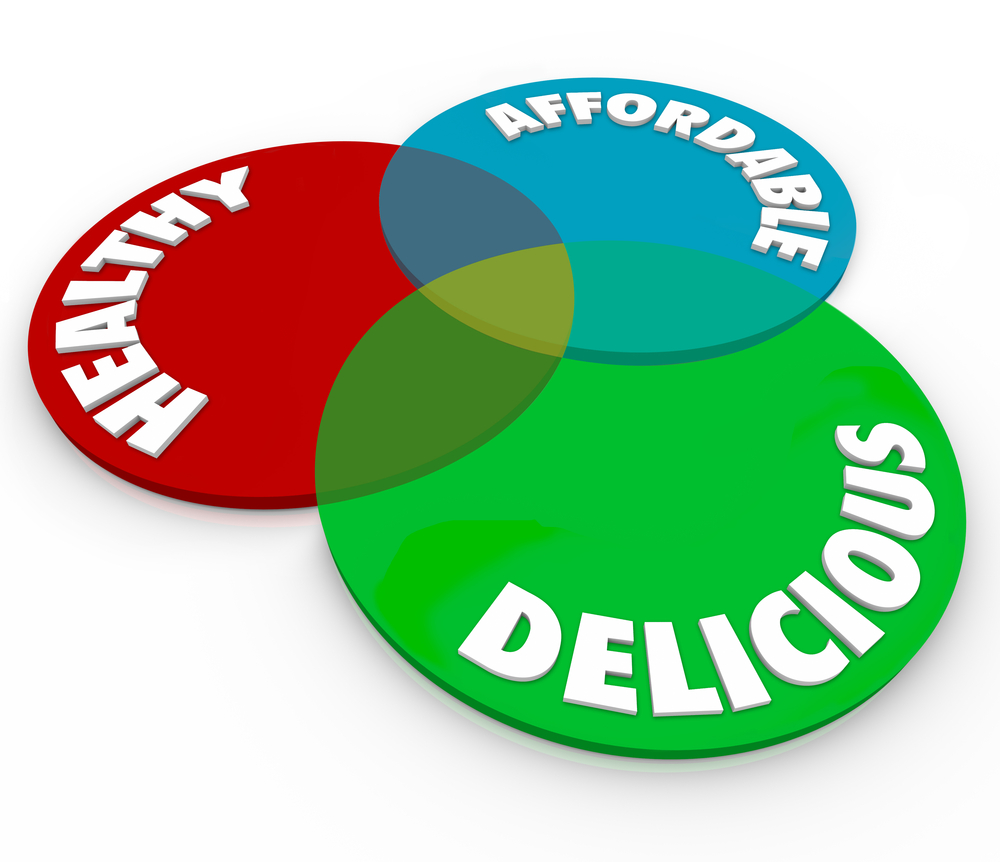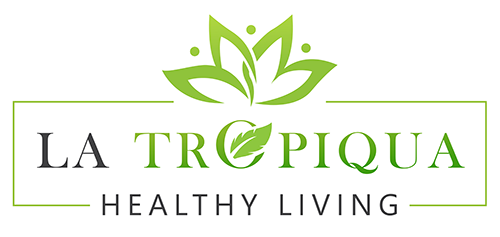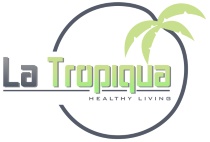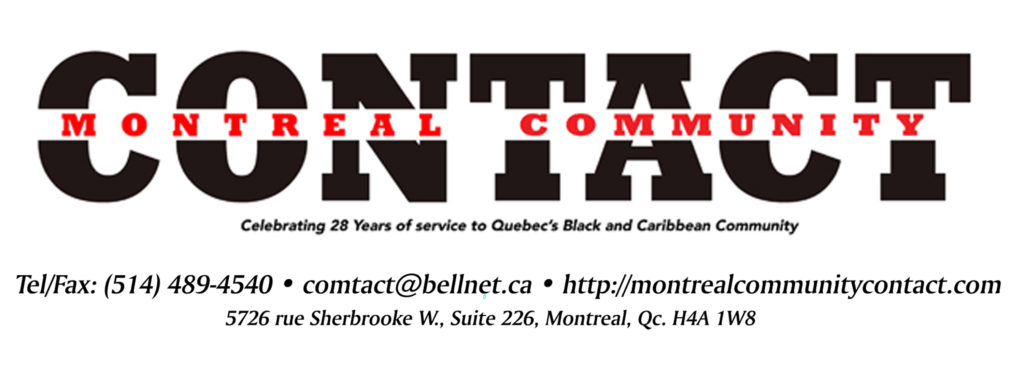
“Eating healthy is too expensive.” I hear this often as a main reason why many people feel that they are unable to follow a healthy, balanced diet. These days, as food prices increase a lot of us are looking for cost-effective, healthy choices.
Processed foods is thought to be cheaper and can quickly help people to achieve their daily caloric intake, compared to healthier options. Yet, while processed foods do tend to be higher in terms of number of calories per serving, one must also factor in the high saturated fats, sugars and salt content, preservatives and more that are associated with eating processed foods. All of which can take a toll on overall health in the medium-to long-term.
When it comes to the higher calories in processed vs. healthy foods, there are of course exceptions. For example, let’s consider a box of prepared macaroni and cheese. An all-time favourite for kids and adults. It is about 1,050 calories, one cup serving is approximately 350 calories. However, there are not many kids or adults, who are satiated by, or satisfied with a single cup of Kraft Mac & Cheese (toddlers perhaps). It’s so good, you often go back for seconds. I’m saying this as a lover of Kraft Mac & Cheese when I was a kid. It’s so tasty, especially the way that we made it back then.
Now, let’s look at a serving of homemade mac and cheese. It could have over 500 calories per cup. This is often so rich and filling, that personally, I can barely finish a cup. While it is difficult to control the ingredients in a box of store-bought Mac & Cheese, you can certainly do so for the homemade version. How? By selecting healthier, including low-calorie ingredients that are good for you (e.g. whole wheat or multigrain macaroni; butter, a great source of fatty acids and nutrients; low fat milk; etc). You’re wondering if it will taste as good as the processed, box version. The response, yes, it will taste even better with a bit of creativity. Another bonus with making your own mac and cheese, you will likely have more servings, to give you leftovers for a day or two. In the end, more economical.
Speaking about economical. Let’s also look at a serving of another favourite for many, potato chips. We will compare a serving (one ounce or about 18 chips) of regular potato chips, to an apple and homemade kale chips. There are about 160 calories in the chips vs. 95 to 100 calories in a medium apple. Whether they are baked or fried, experts will agree that chips are a source of ‘empty calories.’ This means that there are limited health or nutritional benefits when they are consumed, and you need to eat a lot of them to feel full (hence the reason many people can go through an entire bag in one sitting).
An apple however, is high in nutrients, including fibre, the latter known to keep you full longer. What about cost? A bag of family size (235g) potato chips costs almost $5.00 at Costco. While a kilogram of apples (about 6 depending on the size) is about $4.17 to $4.77, in most stores. They will be even cheaper when they are in season. Looking for another healthy alternative to potato chips? Kale chips is fabulous. It’s also fairly easy to make. All you need is dried kale (veins removed), olive oil, a bit of salt and a cookie sheet (make sure that your kale is not overlapping otherwise you will have soggy kale chips). Before popping them in the oven, sprinkle on your favourite seasonings to taste. It stores well for about 2 days in a well-sealed container. An entire bag of home-baked kale chips is about 180 calories, and it’s packed with nutrients. A 2-pound (or 907g) bag of fresh kale could cost about $4.00. In all, more value for money.
From these few examples (there are many others), you can see that eating healthy does not have be expensive. Yes, most of us have busy lives, but if you plan and organize well, eating healthy can be more cost effective. Here are a few tips:
- Opt for homemade rather than store bought. For example, make your own cookies, bread, sauces, etc. They freeze and store well.
A 2.5 kilogram of whole wheat flour costs about $4 (President’s Choice or no name brands can be just as good) and 454g of No Name butter costs about $5. These are two key ingredients that you will need (let’s add a dozen eggs at $3.19 when not on special), they will give you lots of tasty, baked, sweet and savory foods that can last weeks when you freeze them. Make it fun, plan a weekly ‘bake off’ with the family/kids, where possible. - Buy in bulk, take advantage of weekly specials and seasonal produce, to stock up.
- While it’s easier to do all your shopping in one store, shop around for specials, and stock up (it’s worth repeating), when you can. Things like butter, meats and most veggies freeze well when properly packaged.
- Try gardening (this is for the next season). I started doing this a few years ago, with basil, thyme and string beans. I added cherry tomatoes this year. I have been learning lots of gardening tips from my Mom’s friend who is a real pro. You can grow your own vegetables, seasonings and more. At the end of the season, package and freeze them. They can last you the entire winter. Bonus, there are no preservatives; and gardening is healthy for your mind and body.
- While many people know that frozen fruits and veggies is a great alternative to fresh ones (I love frozen blueberries and cherries), canned foods are also a healthy option. Like frozen foods, produce such as chickpeas, black beans (these are two of my favourite canned foods, as they save time) and more, are canned when they are at their peak. This preserves many nutrients, that remain relatively unchanged by the canning process. Other canned foods that I always have in my pantry are tuna and herring. I always stock up on these. You would be amazed what you can whip up with these in a jiffy. Including adding tuna to a green salad. If you’re concerned about the high sodium content when selecting canned produced, there are low and no salt options.
As you can see, there are ways to eat healthy economically. It will require a bit of leg work, literally and figuratively, but it can be done.
Have questions on how you can eat healthier or about healthy living in general? Share them with us. Some will be answered here. Send your questions to: info@latropiqua.ca.
Stay tuned for our coming 30-minute YouTube Show on “Let’s Talk Healthy Living.” We want to empower you to live a healthier lifestyle, one step at a time.
Check out the preview here: https://www.youtube.com/watch?v=KkdqW_AMnqc



